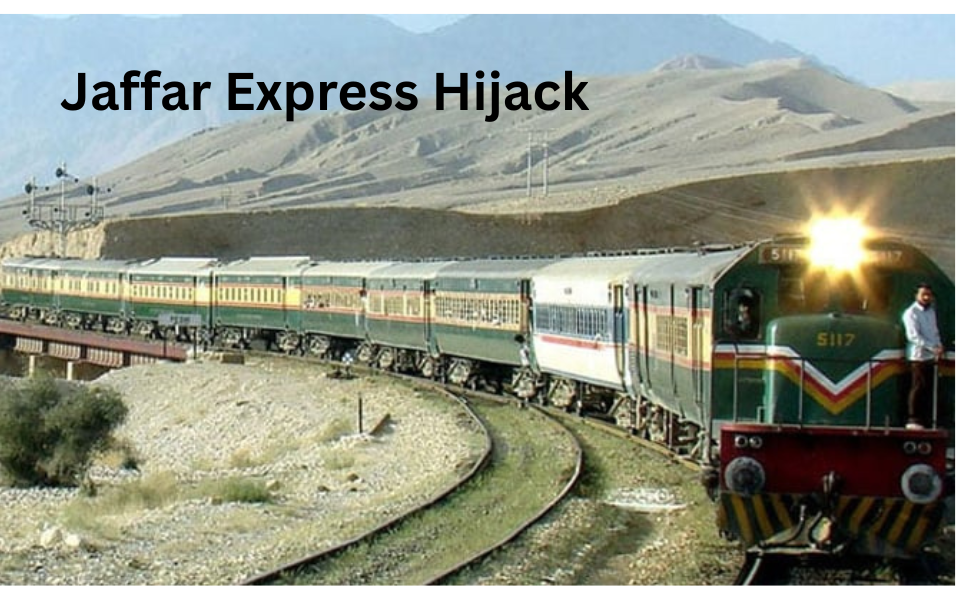
In a shocking incident that has shaken the nation, militants have hijacked (Jaffar Express Hijack) a passenger train in West Pakistan, killing 10 people and taking more than 100 hostages. The incident, which took place in the restive Balochistan region, has once again highlighted the ongoing difficulties in maintaining peace and security within Pakistan’s borders.
All the points in this post
The Incident
The Zafar Express was the scene of a horrific ordeal when armed militants attacked a passenger train travelling through the rugged terrain of Balochistan. Officials say the heavily armed and masked militants took control of the train, killing 10 passengers and taking more than 100 hostages. Since the hijacking took place in a remote location, it was difficult for security personnel to respond immediately.
Response by Security Forces
Pakistani security forces launched a massive rescue operation as soon as they heard about the situation. Several branches of the military and local law enforcement worked together to conduct the hours-long operation. Forces freed 104 hostages, although there were some casualties along the way. In the ensuing clashes, 16 militants were killed and several others were captured.

Aftermath of the Attack
The days following the rescue operation were marked by a wave of mourning, grief and relief across Pakistan. Funerals were held for those whose lives were tragically cut short by the brutal violence. While many people miraculously survived, families mourned their loss. In emotional speeches, government officials condemned the attack and vowed to bring those responsible to justice. Leaders around the world reiterated their commitment to fighting terrorism wherever it comes from and expressed solidarity with Pakistan.
Although the attack was successful, concerns remained about how it could have started. Critics argued that stronger measures were needed to prevent future incidents, pointing to railway security flaws. Others stressed the importance of long-term investment in counterterrorism initiatives, especially in volatile regions like Balochistan.
Background of Militant Activity in Balochistan
Pakistan’s largest province by area, Balochistan, has long been a hotbed of militant activity. Due to its strategic importance and complex socio-political landscape, the region has become a hotbed for various insurgent groups. The continuing threat that these groups pose not only to local communities but also to national security has been evident from previous incidents of violence and hijacking.
Impact on Local and National Security
Local communities, many of whom rely on railways for transport and trade, have been deeply affected by the hijackings. The incident has also led to a reassessment of national security policies, with calls for greater protection for critical infrastructure and the safety of citizens. The incident has drawn international attention to Pakistan’s ongoing security challenges.
Analysis of the Rescue Operation
Although the rescue operation was ultimately successful, it was not without its difficulties. The security forces faced significant challenges due to the preparedness of the militants and the remote location of the hijacking. However, the rapid and tactical response of the forces was crucial in ensuring the safe release of the hostages and minimizing the casualties. The operation demonstrated the need for enhanced intelligence and rapid response capabilities and provided valuable lessons for the upcoming security arrangements.
The End
The Zafar Express hijacking incident is a clear example of Pakistan’s continued threat to peace and security. It is commendable that the security forces were both courageous and effective in rescuing the hostages and eliminating the militants. However, this incident also emphasizes the need for ongoing vigilance and proactive measures to avoid such tragedies in the future. The nation remains steadfast and united in its pursuit of peace and security for all its citizens, even as it mourns the loss of civilians.






